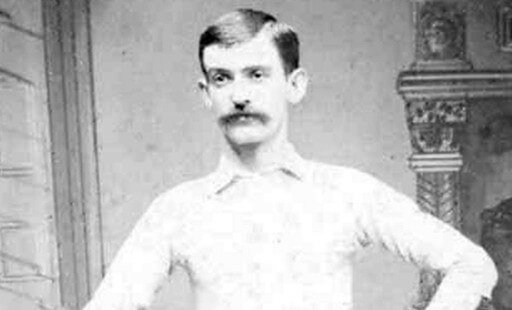Fergus Suter: The First Professional Footballer Who Changed the Game

When people talk about the birth of modern football, they often focus on the creation of the Football League in 1888 or the rules drawn up at the Freemasons’ Tavern in 1863. Yet the true transformation of football from a pastime of the privileged into a professional sport played by the working class has one name attached to it: Fergus Suter. Born in Scotland and making his mark in Lancashire, Suter is remembered as the first recognised professional footballer. His story is not only about the evolution of the game but also about class, opportunity, and determination.
Early Life in Scotland
Fergus Suter was born on 21 November 1857 in Glasgow. Like many young men of the industrial era, he trained as a stonemason, a hard and physically demanding job. Football in Scotland during the 1870s was still in its infancy, largely played by enthusiasts in their free time. Suter joined Partick, a club that no longer exists but at the time provided him with an outlet for his sporting ambitions.
Life for working men in Glasgow was tough, and Suter’s skills on the pitch gave him an escape from long hours of manual labour. He developed a reputation for his robust defending and organisational awareness. The game then was far removed from the polished spectacle of today; pitches were muddy, balls heavy, and rules still loosely interpreted. Yet even in those conditions, Suter’s talent shone through.
The Move to England
In 1878, Fergus Suter made a decision that would change both his life and the sport of football forever. He left Scotland and moved south to Darwen in Lancashire, joining Darwen Football Club. This move was revolutionary because at the time the Football Association still clung tightly to the principle of amateurism. The sport was dominated by gentlemen from wealthy backgrounds who played for leisure rather than livelihood.
Darwen, however, was a working-class club, and they were keen to improve their fortunes in the FA Cup. Rumours quickly spread that Suter was not only given employment as a stonemason but also received money to play football. Though professionalism was not yet legalised, many clubs quietly paid players under the table. Suter was among the first to symbolise this transition, and he found himself at the heart of a brewing storm over class and fairness in the game.
Rivalry and Controversy
The arrival of Fergus Suter gave Darwen newfound strength. They shocked the footballing world in the FA Cup by challenging the dominance of the Old Etonians, a team of wealthy amateurs. For the first time, a working-class side from the industrial north was competing with England’s elite. This sent ripples through the football community, raising uncomfortable questions about who the sport was really for.
In 1880, controversy deepened when Suter moved to nearby Blackburn Rovers. For Darwen supporters, this was a betrayal, as their star man had crossed to a local rival. But for Suter, Blackburn offered more stability, better prospects, and perhaps more generous financial arrangements. His move also intensified the debate about professionalism, as it was increasingly clear that he was earning his living through football rather than through stonework.
Blackburn Glory
At Blackburn Rovers, Fergus Suter enjoyed his greatest successes. He helped the club reach multiple FA Cup finals during the early 1880s, a period when northern teams were beginning to challenge the previously unassailable southern amateur sides.
In 1882, Blackburn Rovers reached the FA Cup final but were defeated by the Old Etonians. This match represented more than a contest on the pitch; it was a battle between the old order of privilege and the rising power of the working-class clubs. Although they lost, Blackburn and Suter had proven that professionalism was not only inevitable but essential for the growth of the sport.
The following years brought glory. Blackburn Rovers, with Suter as a key player, won three consecutive FA Cups in 1884, 1885, and 1886. These victories signalled the decline of amateur dominance and the ascendancy of professional football. Suter had cemented his place in history by leading a working-class team to the very top of English football.
The Birth of Professionalism
The Football Association could no longer ignore reality. By the mid-1880s, it was clear that many clubs were paying players, and the north was brimming with talent eager to play for wages. In 1885, the FA officially recognised professionalism, a move that validated the path Suter had pioneered.
This decision transformed football forever. The working-class game that Suter represented became the backbone of English football culture. Clubs could now openly recruit and pay players, leading to more competitive leagues and greater public interest. Without Fergus Suter’s early stand as a professional, the sport’s professional era may have been delayed or taken a different course.
Later Years and Retirement
By the time the Football League was formed in 1888, Fergus Suter’s career was drawing to a close. He played only once in the newly formed league, appearing as a goalkeeper for Blackburn Rovers in December of that year.
After retiring from football, Suter stayed in Lancashire. He married Martha Almond in 1883 and later ran the Millstone Hotel in Darwen. Despite his pioneering role in football, he lived a relatively quiet life after hanging up his boots. He died in Blackpool on 31 July 1916 at the age of 58.
Legacy and Recognition
Fergus Suter’s contribution to football is immense. As the first recognised professional, he broke barriers and forced the game to evolve. His career highlighted the tension between amateurs and professionals, between privilege and working-class opportunity. Ultimately, he helped pave the way for the inclusive, global sport we know today.
His story was largely forgotten until the 21st century, when renewed interest in football’s roots brought him back into the spotlight. The Netflix drama The English Game, released in 2020, dramatised his life and the controversies around professionalism. While the series took creative liberties, it placed Suter back into the public eye and reminded fans that modern football owes much to his courage and talent.
In 2021, Suter’s neglected grave in Blackburn was restored, ensuring that future generations could pay their respects. Supporters and historians alike now recognise him not merely as a player but as a symbol of football’s transformation.
Impact on Modern Football
It is difficult to overstate how important Fergus Suter was in shaping modern football. He showed that talent should be rewarded, regardless of class or background. By challenging the amateur ethos, he made football accessible to working men across Britain. This inclusivity, more than any rule or league, is what made the sport truly popular.
Today’s multimillion-pound contracts and global superstars can trace their lineage back to Suter’s pioneering step. While he never enjoyed the fame or riches of today’s professionals, his willingness to defy convention and seek fair compensation laid the foundation for everything that followed.
Conclusion
Fergus Suter’s story is not only about football but about social change. Born a stonemason in Glasgow, he became the first recognised professional footballer, challenging the dominance of privileged amateurs and opening the sport to the working class. His triumphs with Blackburn Rovers, his role in the controversy over professionalism, and his enduring legacy mark him as one of the most influential figures in football history.
More than a century after his death, Fergus Suter is celebrated as a pioneer whose courage transformed the game forever. Football as we know it—global, professional, and passionately followed by millions—owes an unpayable debt to the man who dared to be paid for playing.



